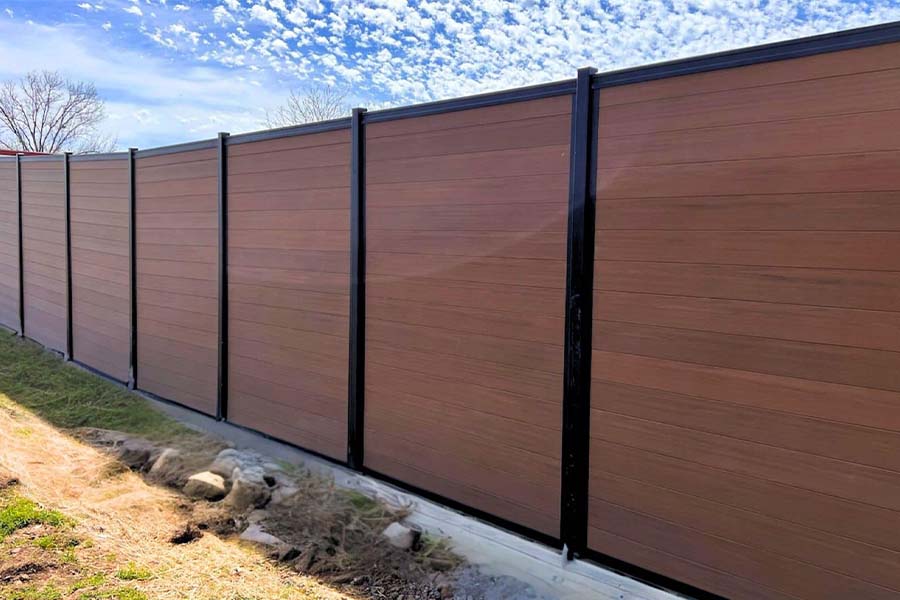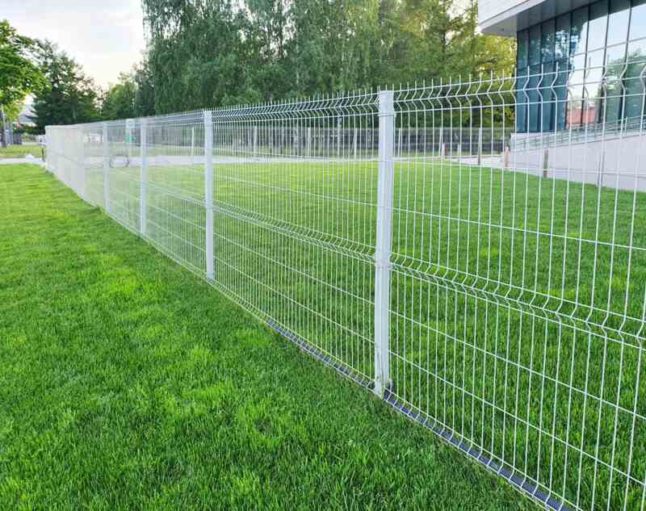Featured

Choosing the right fence material is essential for achieving the balance of toughness, looks, and functionality that fits your home. Wood, plastic, and light weight aluminum are prominent selections, each with one-of-a-kind attributes that provide to details demands. Right here's an in-depth consider the benefits and disadvantages of these three products.
Timber Secure Fencing. Pros:. Timeless Appeal: Timber offers an all-natural, traditional look that enhances various architectural styles. Customizable: It can be repainted or stained in a range of shades and layouts. Affordable: Wood fencings are commonly more affordable ahead of time than plastic or aluminum. Eco-Friendly: As a renewable energy, timber is naturally degradable and lasting when sourced sensibly. Disadvantages:. Maintenance-Intensive: Requires normal discoloration, paint, or sealing to safeguard against weather condition and bugs. Shorter Life Expectancy: Depending upon the type of timber and environment, it usually lasts 10-15 years. Vulnerability to Damages: Prone to deteriorating, bending, and termite damage without appropriate treatment. Timber is perfect for home owners that value looks and want to spend effort and time in upkeep to extend its life.
Plastic Fence. Pros:. Long lasting: Resistant to insects, rot, and weather, plastic maintains its framework in rough conditions. Low Upkeep: Requires little maintenance past periodic cleansing. Lengthy Lifespan: Plastic can last 20-30 years without significant wear or damage. Flexible Designs: Available in different shades, textures, and styles, consisting of options that mimic timber. Cons:. Pricey Setup: Vinyl fencings are more costly to set up contrasted to wood. Fragile in Cold Weather: Vinyl can split in severe cool environments. Challenging to Repair: If damaged, entire areas may need replacement, which can be challenging to match. Vinyl fencing is a great option for those prioritizing longevity and very little upkeep, also if it comes with a greater in advance price.

Aluminum Fence. Pros:. Rust-Resistant: Light weight aluminum does not corrosion, making it ideal for moist or moist locations. Lightweight however Solid: Deals stamina without being extremely heavy, which simplifies installment. Reduced Upkeep: Needs little greater than cleansing and periodic repainting. Longevity: Aluminum fencings can last for decades without considerable damage. Sophisticated Styles: Typically used for ornamental purposes, light weight aluminum includes refinement to any residential property. Disadvantages:. High Preliminary Price: Light weight aluminum fences are among the more costly alternatives. Minimal Privacy: Typically developed with open rooms, they do not obstruct sights or sound. At risk to Dents: While tough, aluminum can be nicked or bent with hefty impact. Light weight aluminum is finest suited for those who want a long-lasting, trendy fencing and don't require total personal privacy.
Making the Right Selection. Each product has its weak points and strengths:

Wood is best for eco-conscious customers and standard visual appeals that do not mind maintenance. Vinyl works for property owners looking for a weather-resistant, low-maintenance service. Aluminum is a sturdy, attractive option for those who want beauty and durability. Consider your top priorities-- whether it's expense, look, personal privacy, or upkeep-- and get in touch with a secure fencing expert to select the material that best fulfills your needs. A well-selected fencing will improve your residential property for years to come.
Latest Posts
Check Out Outstanding Vehicle Maintenance Care from Montclare Auto Repair – Drive with Confidence
Published May 30, 25
1 min read
Check Out Montclare Auto Repair’s Most Popular Services and Why Drivers Rely On Them
Published May 25, 25
1 min read
Find Brake Repair & More: Complete Repair Options from Montclare Auto Repair
Published May 23, 25
1 min read
More
Latest Posts
Check Out Outstanding Vehicle Maintenance Care from Montclare Auto Repair – Drive with Confidence
Published May 30, 25
1 min read
Check Out Montclare Auto Repair’s Most Popular Services and Why Drivers Rely On Them
Published May 25, 25
1 min read
Find Brake Repair & More: Complete Repair Options from Montclare Auto Repair
Published May 23, 25
1 min read